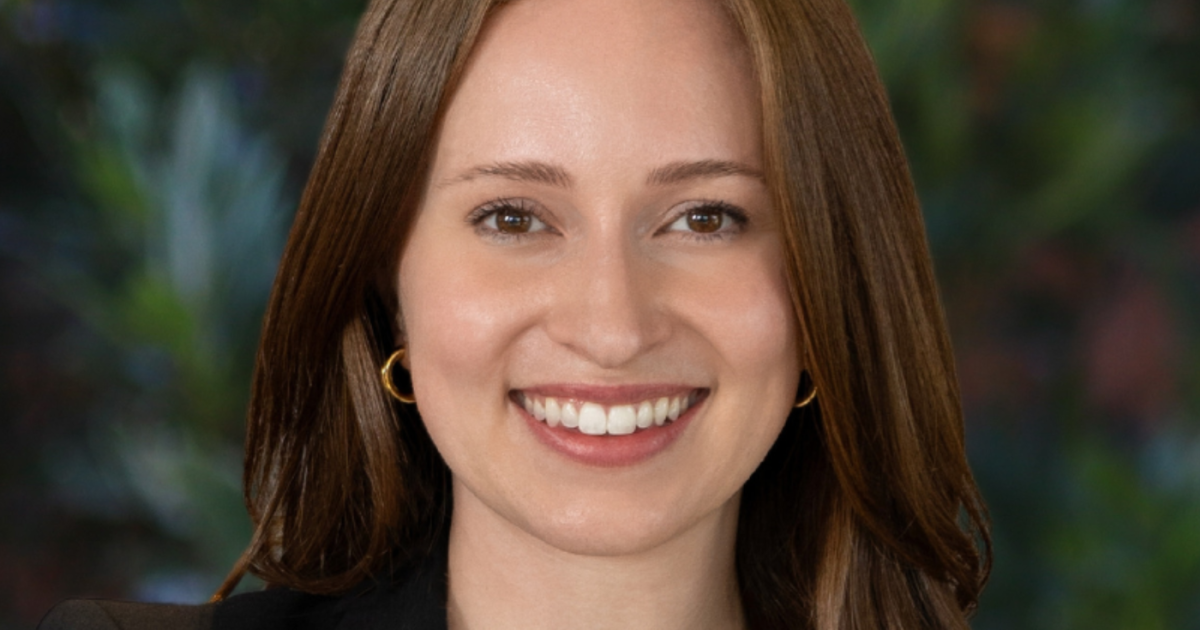Accounting
The 2024 Accounting Today Salary Survey: Partners pinching pennies
Published
10 months agoon

Compensation for early-career accountants is a key factor in making the profession more attractive for young people. Starting salaries have lagged behind that of neighboring professions and industries; students can graduate into higher-paying jobs in finance or technology with the same level of education or less than is required for accountants.
And with the ongoing labor shortage — fewer people studying accounting, fewer completing 150 credit hours, fewer achieving CPA licensure, and even fewer staying in the profession until they make partner — accounting firms have no time to waste in raising starting salaries.
Accounting Today and its parent company Arizent conducted our inaugural salary survey in May 2024, collecting over 560 responses from accountants from firms of all sizes regarding their salaries, benefits and career trajectories. The survey found that the median base salary for a staff accountant nationwide is $65,000. For comparison, in Pennsylvania, entry-level CPAs earn $68,000, versus entry-level finance consultants at $71,000, management consultants at $87,000 and supply chain managers at $91,000, according to a recent talent retention report by the Pennsylvania Institute of CPAs. Meanwhile, graduates who majored in engineering, computer science and math are all expected to earn starting salaries above $70,000, according to nationwide projections from the National Association of Colleges and Employees ($76,736, $74,778 and $71,076 respectively).

What is keeping firms from raising starting salaries? The answer involves a complex set of factors, but the first reason is straightforward, if a bit antiquated: This is the way it’s always been done.
“There’s a mindset that this is an apprentice business. There’s a huge investment that firms make in people in the early years and as they get skilled they earn more,” said Jennifer Wilson, partner and co-founder at ConvergenceCoaching. “But that model is a mindset that’s no longer valid because most young people out of school expect that they’re going to have big investment by their employers, regardless of their chosen profession, and they’re not willing to pay dues by making less and learning more. They’re figuring, ‘I’m going to get that anywhere.'”
(See the data from
The U.S. Bureau of Labor Statistics projects that Generation Z (those younger than age 28), will make up about 30% of the U.S. workforce by 2030. This cohort is already defining how their work expectations differ from the generations that preceded them, including having little desire to spend their entire lives at one company, or even in one industry, which is antithetical to the traditional career path for an accountant, where it was considered normal to progress from intern to partner all at the same firm. In that model, low starting salaries were accepted because young accountants expected to make it up once they made partner.
Younger generations aren’t sure they want to stay at the same firm that long, however, and with 47% of respondents to Accounting Today’s survey saying that it takes between 10 and 20 years to make partner at their firm, they may be less willing to forego current compensation for money that may never materialize in a role they may not even be interested in taking on.
“That idea of delayed gratification is an old-fashioned idea, and it still lives inside our profession,” Wilson said.
The second contributor to low salaries is the interests of aging partners nearing retirement, Wilson said: “The average partner comp has continued to increase over time when starting salaries have not, and that is a lack of redistribution of that wealth. I would say it’s because partners feel like, ‘I paid my dues and I deserve this.'”
Survey data reflected a median base partner salary of $125,000 for firms with fewer than 10 employees, and $205,000 for those at firms with more than 10 employees. These numbers likely skew low, as 53% of respondents reported working at firms with less than $5 million in net revenue. For this reason, partner data for midsized and big firms could not be broken out in detail with a high enough level of statistical significance. However, the data indicates the top 5% of partners at firms with fewer than 10 employees earned salaries of $250,000, and the top 5% at firms with more than 10 employees earned $700,000. (Partners at the Big Four and other billion-dollar firms can make far more than that, of course, but relatively few participated, and were treated as outliers.)
As one survey respondent, a chief operating officer at a midsized firm, put it: “Look out for yourself. Partners are greedy. Public accounting is a giant pyramid scheme.”
But accountants are not compensation experts, and they do not invest in HR expertise as they should, Wilson said. The common objection to increasing starting salaries is the assumption that if you raise starting salaries, then you have to raise everybody’s salary, and that would cost a fortune. The solution is to make the largest adjustment in the lowest salary band (staff), and then make smaller adjustments in the subsequent bands (senior, manager, etc.) to lessen the steep climb to partner salaries.
The data also reveals that an individual’s number of years of experience does not have an appreciable impact on aggregate salary ranges for each job level. The median salary for staff with less than 10 years experience was $65,000, and $71,000 for staff with more than 10 years. Similarly, seniors with less than 10 years showed a median salary of $87,000, and only $88,000 for seniors with more than 10 years.
“Tenure means nothing anymore,” said Sandra Wiley, shareholder and president at Boomer Consulting. “The number of years you’ve been sitting in the seat at whatever firm you’re at has a lot less to do with your salary than what you bring to the table, how fast you learn it, and how fast you apply it.”
The consequences
The result is poor work-life balance in exchange for low salaries for young accountants. For some, the promise of a greater salary down the road isn’t enough to counterbalance working 80 hours a week during tax season now. “You’re going to wish you were paid hourly during busy season,” one senior tax associate at a large firm said.
“I wish I knew that public accounting firms don’t value their employees the way that they say they do. What is said and what is done does not match,” a tax accountant at a midsized firm said. “Low pay, long hours, grueling work, no internal onboarding or training to support staff. It’s a sink-or-swim mentality.”
Raises typically come through promotions and performance evaluation. Though 74% of respondents say they know what qualifications they need to be promoted, roughly one-third of staff, seniors and managers say they feel the need to jump to another job in order to make a meaningful increase in salary. In the same vein, three-quarters of respondents say they’ve worked at another firm before joining their current firm.
“If making as much money as possible is the goal, be prepared to jump firms every few years,” a tax manager at a small firm said. “Many firms do not reward long-term loyalty with appropriate salary increases after two to three years.”
It’s an employees’ market now, Wiley said. “Senior leadership has figured out, ‘If you don’t give me what I want here, I can go tomorrow and find the job that I want out there.'”
But KPMG’s vice chair of talent and culture, Sandy Torchia, doesn’t see this trend as entirely negative. While there are opportunities for moving around functions, industries and geographies within a Big Four firm, “Not everyone’s going to stay at KPMG for their entire career, but building future leaders, giving them the experiences and credentials to go and be successful at our clients, in our communities, etc., is a really important part of the ecosystem.”
The solution
Higher starting salaries are key to making the accounting profession more attractive to young people, but the solution is multifaceted.
It starts with salary transparency, both for lower-level salaries and partner salaries. KPMG is taking steps to do just that: “When we’re communicating compensation to our employees at the beginning of the fiscal year, we communicate to them pay ranges, and the pay ranges are for their base salary as well as for variable compensation,” Torchia said. “We want to make sure that they understand not only the pay ranges, but where they fall within that pay range, so that they can see what the opportunity is for growth within their current role.”
The next step is actually raising starting salaries: “Given the demographic tendencies of the people entering the workforce now, they’re not in a position where they feel like they can defer those big earnings that far out into their career,” said Lisa Simpson, vice chair of firm services at the American Institute of CPAs. “So are there ways to push it down a little earlier and make the jumps in between each level less dramatic?”
The time it takes to make partner will inevitably need to shorten too. “People are not going to wait that long,” Wiley said. “If we are true to our word that entry-level staff positions can be outsourced or automated, that means we have to start people at a different level to begin with.”
This means firms will have to start teaching and training differently. “It requires more handholding on the front end, but they’re able to get to the higher-level work faster. Therefore, the billing that you can get them to quicker is better,” Wiley said.
‘Culture is greater than salary’
The consequence of pushing off salary increases is the risk of talent exiting the profession entirely, which makes retention all the more important. The pipeline problem isn’t going away. Firms need to be competing not only on compensation but benefits and culture, too.
“Culture is greater than salary,” a manager at a large firm said. “I could jump somewhere for maybe $10,000 to $20,000 more, but I do not think I can replicate the culture of my firm. A lot of people I talk with have moved jobs for more money and almost immediately regretted it due to the work environment. I would rather take a steady, reasonable paycheck, with job security and ethical bosses, than move to a higher paying job where I’m constantly fearing retaliation or being fired.”
While noting it is difficult to make blanket generalizations for the entire profession, “I think all firms have different levers they can push if they really focus on managing that workload,” the AICPA’s Simpson said.
Small firms need to double down on strategy, carefully considering the services they’re offering, whom they’re offering them to, and how they’re delivering them. Simpson specifically said that large firms need to implement offshoring strategies and capitalize on technology. All firms can be streamlining their processes to make sure they’re pushing work through their systems effectively, and they should make sure they’re billing for their value and to keep up with cost structures — accounting is a very loyal profession and firms sometimes struggle to raise rates despite increasing costs, Simpson said.
For instance, the slam of busy season can be mitigated, she explained: “We can control that tax season by managing our client load, by managing our client expectations, and putting in processes and key metrics and keep the workflow moving throughout the year, rather than just in these crunch periods, April 15 and October 15.”
The accounting profession is an excellent vehicle for wealth building, with large salary trajectories in store at the partner, owner and managing partner levels. But the profession needs to raise starting salaries to attract young talent, be transparent about their earning potential in each role, and meet their demands in order to retain that talent.
“Another way to think about this is the word ‘stewardship,'” Wilson said. “‘I should be a steward of my firm and careful to make sure that I am investing in it as much as I am taking out of it.’ I do think sometimes we lose sight of our stewardship.”
You may like


The American Institute of CPAs is asking leaders of the Senate Finance Committee and the House Ways and Means Committee to make changes in the wide-ranging tax and spending legislation that was
In a
“While we support portions of the legislation, we do have significant concerns regarding several provisions in the bill, including one which threatens to severely limit the deductibility of state and local tax (SALT) by certain businesses,” wrote AICPA Tax Executive Committee chair Cheri Freeh in the letter. “This outcome is contrary to the intentions of the One Big Beautiful Bill Act, which is to strengthen small businesses and enhance small business relief.”
The AICPA urged lawmakers to retain entity-level deductibility of state and local taxes for all pass-through entities, strike the contingency fee provision, allow excess business loss carryforwards to offset business and nonbusiness income, and retain the deductibility of state and local taxes for all pass-through entities.
The proposal goes beyond accounting firms. According to the
The AICPA argued that SSTBs would be unfairly economically disadvantaged simply by existing as a certain type of business and the parity gap among SSTBs and non-SSTBs and C corporations would widen.
Under current tax law (and before the passage of the Tax Cuts and Jobs Act of 2017), it noted, C corporations could deduct SALT in determining their federal taxable income. Prior to the TCJA, owners of PTEs (and sole proprietorships that itemized deductions) were also allowed to deduct SALT on income earned by the PTE (or sole proprietorship).
“However, the TCJA placed a limitation on the individual SALT deduction,” Freeh wrote. “In response, 36 states (of the 41 that have a state income tax) enacted or proposed various approaches to mitigate the individual SALT limitation by shifting the SALT liability on PTE income from the owner to the PTE. This approach restored parity among businesses and was approved by the IRS through Notice 2020-75, by allowing PTEs to deduct PTE taxes paid to domestic jurisdictions in computing the entity’s federal non-separately stated income or loss. Under this approved approach, the PTE tax does not count against partners’/owners’ individual federal SALT deduction limit. Rather, the PTE pays the SALT, and the partners/owners fully deduct the amount of their distributive share of the state taxes paid by the PTE for federal income tax purposes.”
The AICPA pointed out that C corporations enjoy a number of advantages, including an unlimited SALT deduction, a 21% corporate tax rate, a lower tax rate on dividends for owners, and the ability for owners to defer income.
“However, many SSTBs are restricted from organizing as a C corporation, leaving them with no option to escape the harsh results of the SSTB distinction and limiting their SALT deduction,” said the letter. “In addition, non-SSTBs are entitled to an unfettered qualified business income (QBI) deduction under Internal Revenue Code section 199A, while SSTBs are subject to harsh limitations on their ability to claim a QBI deduction.”
The AICPA also believes the bill would add significant complexity and uncertainty for all pass-through entities, which would be required to perform complex calculations and analysis to determine if they are eligible for any SALT deduction. “To determine eligibility for state and local income taxes, non-SSTBs would need to perform a gross receipts calculation,” said the letter. “To determine eligibility for all other state and local taxes, pass-through entities would need to determine eligibility under the substitute payments provision (another complex set of calculations). Our laws should not discourage the formation of critical service-based businesses and, therefore, disincentivize professionals from entering such trades and businesses. Therefore, we urge Congress to allow all business entities, including SSTBs, to deduct state and local taxes paid or accrued in carrying on a trade or business.”
Tax professionals have been hearing about the problem from the Institute’s outreach campaign.
“The AICPA was making some noise about that provision and encouraging some grassroots lobbying in the industry around that provision, given its impact on accounting firms,” said Jess LeDonne, director of tax technical at the Bonadio Group. “It did survive on the House side. It is still in there, specifically meaning the nonqualifying businesses, including SSTBs. I will wait and see if some of those efforts from industry leaders in the AICPA maybe move the needle on the Senate side.”
Contingency fees
The AICPA also objects to another provision in the bill involving contingency fees affecting the tax profession. It would allow contingency fee arrangements for all tax preparation activities, including those involving the submission of an original tax return.
“The preparation of an original return on a contingent fee basis could be an incentive to prepare questionable returns, which would result in an open invitation to unscrupulous tax preparers to engage in fraudulent preparation activities that takes advantage of both the U.S. tax system and taxpayers,” said the AICPA. “Unknowing taxpayers would ultimately bear the cost of these fee arrangements, since they will have remitted the fee to the preparer, long before an assessment is made upon the examination of the return.”
The AICPA pointed out that contingent fee arrangements were associated with many of the abuses in the Employee Retention Credit program, in both original and amended return filings.
“Allowing contingent fee arrangements to be used in the preparation of the annual original income tax returns is an open invitation to abuse the tax system and leaves the IRS unable to sufficiently address this problem,” said the letter. “Congress should strike the contingent fee provision from the tax bill. If Congress wants to include the provision on contingency fees, we recommend that Congress provide that where contingent fees are permitted for amended returns and claims for refund, a paid return preparer is required to disclose that the return or claim is prepared under a contingent fee agreement. Disclosure of a contingent fee arrangement deters potential abuse, helps ensure the integrity of the tax preparation process, and ensures compliance with regulatory and ethical standards.”
Business loss carryforwards
The AICPA also called for allowing excess business loss carryforwards to offset business and nonbusiness income. It noted that the One Big Beautiful Bill Act amends Section 461(l)(2) of the Tax Code to provide that any excess business loss carries over as an excess business loss, rather than a net operating loss.
“This amendment would effectively provide for a permanent disallowance of any business losses unless or until the taxpayer has other business income,” said letter. “For example, a taxpayer that sells a business and recognizes a large ordinary loss in that year would be limited in each carryover year indefinitely, during which time the taxpayer is unlikely to have any additional business income. The bill should be amended to remove this provision and to retain the treatment of excess business loss carryforwards under current law, which is that the excess business loss carries over as a net operating loss (at which point it is no longer subject to section 461(l) in the carryforward year).
AICPA supports provisions
The AICPA added that it supported a number of provisions in the bill, despite those concerns. The provisions it supports and has advocated for in the past include
• Allow Section 529 plan funds to be used for post-secondary credential expenses;
• Provide tax relief for individuals and businesses affected by natural disasters, albeit not
permanent;
• Make permanent the QBI deduction, increase the QBI deduction percentage, and expand the QBI deduction limit phase-in range;
• Create new Section 174A for expensing of domestic research and experimental expenditures and suspend required capitalization of such expenditures;
• Retain the current increased individual Alternative Minimum Tax exemption amounts;
• Preserve the cash method of accounting for tax purposes;
• Increase the Form 1099-K reporting threshold for third-party payment platforms;
• Make permanent the paid family leave tax credit;
• Make permanent extensions of international tax rates for foreign-derived intangible income, base erosion and anti-abuse tax, and global intangible low-taxed income;
• Exclude from GILTI certain income derived from services performed in the Virgin
Islands;
• Provide greater certainty and clarity via permanent tax provisions, rather than sunset
tax provisions.
Accounting
On the move: HHM promotes former intern to partner
Published
20 hours agoon
May 30, 2025

KPMG anoints next management committee; Ryan forms Tariff Task Force; and more news from across the profession.
Accounting
Mid-year moves: Why placed-in-service dates matter more than ever for cost segregation planning
Published
21 hours agoon
May 30, 2025

In the world of depreciation planning, one small timing detail continues to fly under the radar — and it’s costing taxpayers serious money.
Most people fixate on what a property costs or how much they can write off. But the placed-in-service date — when the IRS considers a property ready and available for use — plays a crucial role in determining bonus depreciation eligibility for cost segregation studies.
And as bonus depreciation continues to phase out (or possibly bounce back), that timing has never been more important.
Why placed-in-service timing gets overlooked
The IRS defines “placed in service” as the moment a property is ready and available for its intended use.
For rentals, that means:
- It’s available for move-in, and,
- It’s listed or actively being shown.
But in practice, this definition gets misapplied. Some real estate owners assume the closing date is enough. Others delay listing the property until after the new year, missing key depreciation opportunities.
And that gap between intent and readiness? That’s where deductions quietly slip away.
Bonus depreciation: The clock is ticking
Under current law, bonus depreciation is tapering fast:
- 2024: 60%
- 2025: 40%
- 2026: 20%
- 2027: 0%
The difference between a property placed in service on December 31 versus January 2 can translate into tens of thousands in immediate deductions.
And just to make things more interesting — on May 9, the House Ways and Means Committee released a draft bill that would reinstate 100% bonus depreciation retroactive to Jan. 20, 2025. (The
The result? Accountants now have to think in two timelines:
- What the current rules say;
- What Congress might say a few months from now.
It’s a tricky season to navigate — but also one where proactive advice carries real weight.
Typical scenarios where timing matters
Placed-in-service missteps don’t always show up on a tax return — but they quietly erode what could’ve been better results. Some common examples:
- End-of-year closings where the property isn’t listed or rent-ready until January.
- Short-term rentals delayed by renovation punch lists or permitting hang-ups.
- Commercial buildings waiting on tenant improvements before becoming operational.
Each of these cases may involve a difference of just a few days — but that’s enough to miss a year’s bonus depreciation percentage.
Planning moves for the second half of the year
As Q3 and Q4 approach, here are a few moves worth making:
- Confirm the service-readiness timeline with clients acquiring property in the second half of the year.
- Educate on what “in service” really means — closing isn’t enough.
- Create a checklist for documentation: utilities on, photos of rent-ready condition, listings or lease activity.
- Track bonus depreciation eligibility relative to current and potential legislative shifts.
For properties acquired late in the year, encourage clients to fast-track final steps. The tax impact of being placed in service by December 31 versus January 2 is larger than most realize.
If the window closes, there’s still value
Even if a property misses bonus depreciation, cost segregation still creates long-term savings — especially for high-income earners.
Partial-year depreciation still applies, and in some cases, Form 3115 can allow for catch-up depreciation in future years. The strategy may shift, but the opportunity doesn’t disappear.
Placed-in-service dates don’t usually show up on investor spreadsheets. But they’re one of the most controllable levers in maximizing tax savings. For CPAs and advisors, helping clients navigate that timing correctly can deliver outsized results.
Because at the end of the day, smart tax planning isn’t just about what you buy — it’s about when you put it to work.

Why JPMorgan hired NOAA’s Sarah Kapnick as chief climate scientist

How to save on summer travel in 2025

Denmark raises retirement age to 70; U.S. might follow

New 2023 K-1 instructions stir the CAMT pot for partnerships and corporations

The Essential Practice of Bank and Credit Card Statement Reconciliation

Are American progressives making themselves sad?
Trending
-

 Accounting1 week ago
Accounting1 week agoHouse tax bill includes provision eliminating PCAOB
-

 Economics1 week ago
Economics1 week agoWhat happens if the Inflation Reduction Act goes away?
-

 Personal Finance1 week ago
Personal Finance1 week agoWhat House Republican ‘big beautiful’ budget bill means for your money
-

 Accounting1 week ago
Accounting1 week agoTrump tax bill faces Senate’s arcane rules, desire for changes
-

 Finance1 week ago
Finance1 week agoPersonal finance app Monarch raises $75 million
-

 Economics1 week ago
Economics1 week agoHow much worse could America’s measles outbreak get?
-

 Economics1 week ago
Economics1 week agoA court resurrects the United States Institute of Peace
-

 Economics1 week ago
Economics1 week agoCalifornia has got really good at building giant batteries
